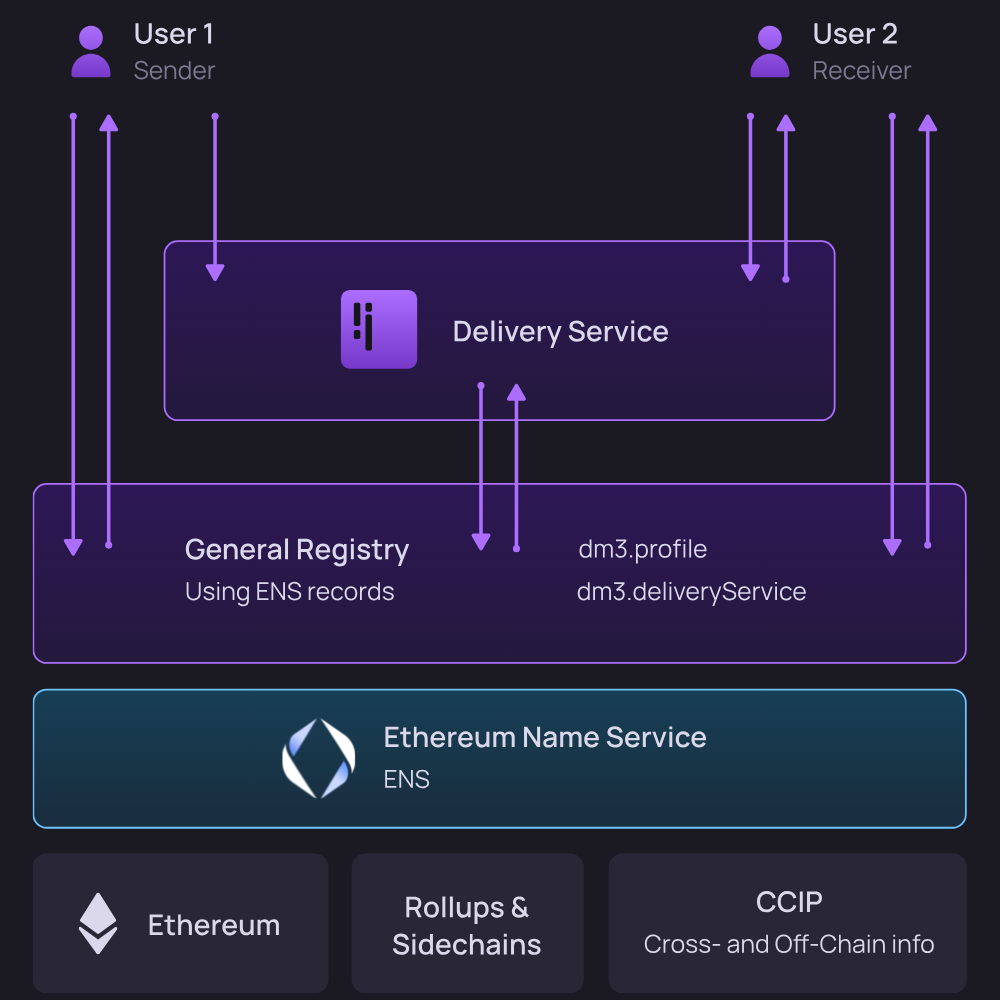The dm3 protocol is a minimal viable peer-2-peer messaging protocol based on web3 technology. It offers security through end-to-end encryption, privacy preservation, resistance to censorship, and manipulation, decentralization, and no single-point-of-failure. It can be extended with features such as group chats, billboard message chats, enhanced privacy, public status messages, spam protection, and interoperability with other protocols, services, and applications.
The dm3 protocol relies on a network of delivery service nodes to deliver encrypted messages. These nodes can be operated as services, or users can run their own nodes for complete independence and self-sovereignty. Delivery services can also act as gateways to other protocols and services, enabling messaging beyond the boundaries of individual applications and ecosystems.
The dm3 protocol relies on a network of delivery service nodes to deliver encrypted messages. These nodes can be operated as services, or users can run their own nodes for complete independence and self-sovereignty. Delivery services can also act as gateways to other protocols and services, enabling messaging beyond the boundaries of individual applications and ecosystems.

The dm3 protocol uses the Ethereum Name System (ENS) as a decentralized registry to enable sender and recipient to find each other’s public keys for encryption and signature verification without relying on a centralized intermediary. This registry can be extended to include information from other blockchains and data services, allowing the protocol to connect to existing ecosystems.
One of the main focuses of dm3 is interoperability with other messaging protocols and services. The protocol serves as a base for secure message exchange and allows for the connection of existing web3 and web2 ecosystems, enabling users of different systems to interact with each other.
Dive into the realms of dm3 and explore what all the fuzz is about.